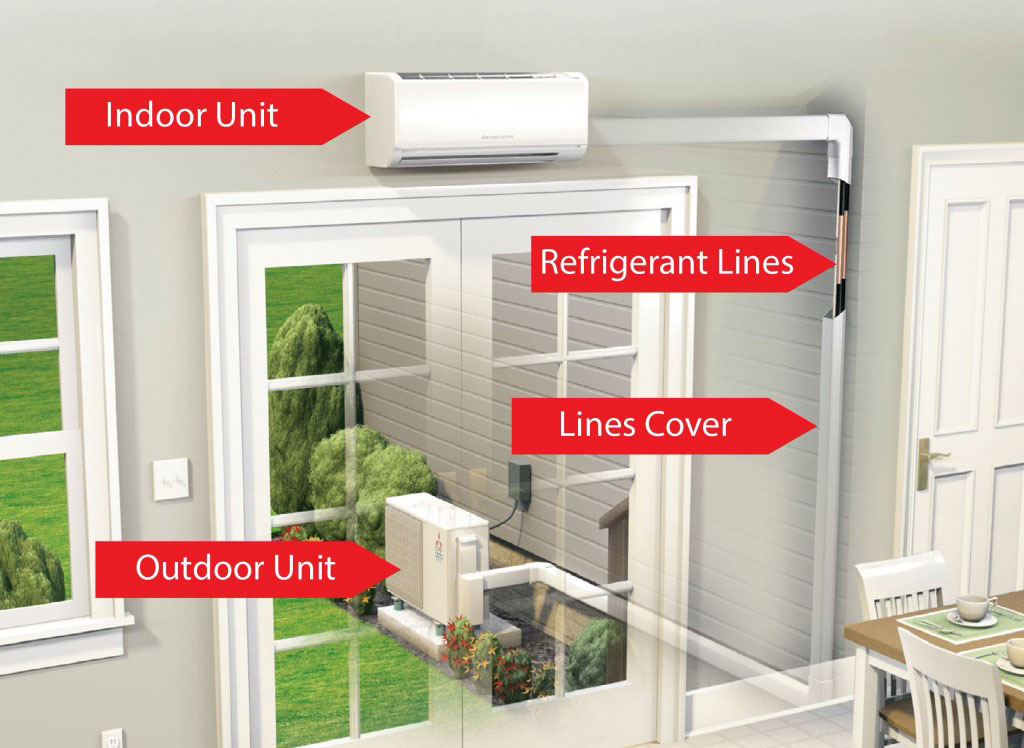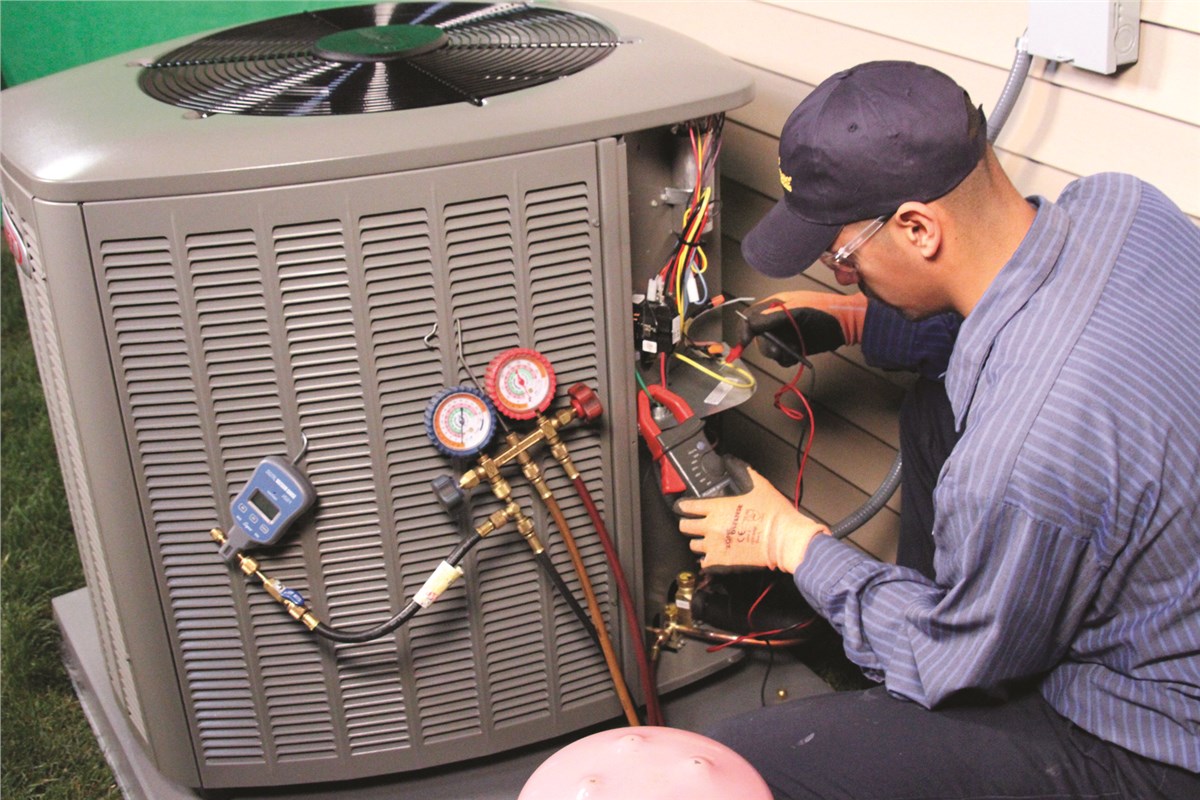Think of a globe where the blistering warm of tomorrow fulfills your dependence on air conditioning today. As environment change continues to alter temperature patterns globally, the effect on air conditioning requires comes to be significantly necessary.
But just what does this mean for the future of cooling down systems and the comfort they give? Keep tuned to check out the unfolding challenges and potential services in handling the intersection of environment change and air conditioning needs.

Trick Takeaways
- Increasing temperature levels drive raised demand for energy-efficient air conditioning.
- Sustainability efforts push for environment-friendly cooling services.
- Adjusting facilities to environment changes is essential for efficient air conditioning.
- Innovative modern technologies are important for sustainable and resilient a/c.
Rising Temperature Levels and Air Conditioning Demand
As temperatures remain to rise globally, the need for a/c systems is increasing considerably. With the demand for temperature level guideline coming to be extra essential, individuals are depending on cooling devices to maintain comfortable indoor atmospheres. This surge popular is also pushing for developments in cooling effectiveness, triggering makers to develop more energy-efficient and efficient cooling solutions.

When it concerns temperature level law, cooling systems play an essential function in making sure that indoor rooms stay amazing and comfy, specifically throughout hot weather. The increasing temperatures due to climate modification have made these systems essential for numerous houses and services alike. As a consumer, you may locate yourself seeking air conditioning systems that supply exceptional cooling down performance to deal with the heat properly.
In reaction to the rising demand for air conditioning systems, suppliers are focusing on enhancing cooling performance to meet the needs of customers while additionally dealing with environmental worries. By purchasing energy-efficient modern technologies, these systems can provide the needed cooling without jeopardizing on efficiency, supplying a balance between comfort and sustainability.
Power Usage Challenges
With the increasing demand for a/c systems driven by boosting temperatures, the challenge of energy usage emerges as a considerable concern in the domain name of cooling services. As cooling down need patterns remain to escalate as a result of environment modification results, there's a pressing demand for power effectiveness advancements to address the surging power intake patterns connected with cooling systems.
To tackle this issue, sustainability initiatives play an essential role in advertising environmentally friendly techniques and reducing the overall power usage of cooling down systems. By incorporating energy-efficient modern technologies and executing lasting techniques, such as making use of smart thermostats and enhancing building styles for all-natural cooling, individuals and companies can add to alleviating the effect of air conditioning on power usage.
Welcoming these improvements not only aids reduced energy bills however likewise aids in lowering the carbon footprint associated with cooling down services, promoting a much more sustainable approach to meeting the increasing need for cooling in a warming world.
Influence On Air Conditioning Infrastructure
The importance of preserving and upgrading cooling framework in feedback to climate change can't be overstated. As temperature levels increase and extreme warmth occasions become a lot more constant, the need for cooling systems is boosting. Right here are some key points to remember:
- Air Conditioning System Upgrades: With climate adaptation in mind, investing in energy-efficient cooling systems and technologies is essential to fulfill the growing air conditioning demands. Upgrading to newer, a lot more effective systems can help in reducing power intake and lower greenhouse gas discharges.
- Infrastructure Durability: Building durable cooling facilities that can withstand the influences of climate modification, such as heatwaves and extreme weather events, is essential. This consists of making certain appropriate insulation, air flow, and upkeep of cooling systems to enhance their longevity and performance.
- Climate Adaptation: Adapting cooling facilities to altering environment problems is essential to meet the enhancing air conditioning needs while lessening environmental influences. Strategic preparation and financial investment in lasting air conditioning remedies can aid reduce the impacts of environment modification on cooling down systems.
Health and Well-being Effects
Maintaining and updating cooling framework in response to climate modification not just effects energy performance but likewise straight affects health and wellness and well-being.
When temperatures soar due to climate change, the need for cooling climbs, resulting in extended exposure to interior settings. This long term exposure can have substantial effects on mental health, as research studies have shown a correlation in between severe warm and raised levels of stress and anxiety, stress and anxiety, and even depression.
Additionally, as air conditioning systems function to cool indoor rooms, they play an essential function in maintaining excellent interior air high quality. Poor interior air high quality can result in breathing issues, allergic reactions, and various other health issue.
Adjustment Techniques for AC Demands
Thinking about the intensifying demand for a/c because of climate modification, executing adaptation strategies is important to guarantee reliable air conditioning solutions. To address the raising need for cooling while lessening power usage and prices, here are some vital approaches to ponder:
- Air conditioning Performance: Enhancing the effectiveness of your air conditioning system can considerably reduce power usage. Normal maintenance, appropriate insulation, and purchasing energy-efficient models can all add to far better cooling efficiency.
- Demand Reaction: Participating in demand feedback programs can help handle peak power demand. By readjusting your air conditioner use during high-demand periods or utilizing clever thermostats to enhance air conditioning based on power rates, you can contribute to a more lasting power grid.
- Smart Innovation Assimilation: Integrating wise technologies like sensors, automation, and push-button controls can help you manage cooling down better. These tools enable you to keep an eye on and adjust your air conditioning system for leading performance and power cost savings.
Future Outlook and Solutions
You can anticipate a boosted emphasis on reliable air conditioning technologies, such as wise thermostats and variable refrigerant flow systems, to battle the effects of climate modification on cooling.

Embracing renewable energy options like solar power for cooling down systems will certainly become more vital as the demand for lasting services grows.
Adapting to the changing environment by applying cutting-edge air conditioning techniques will certainly be necessary in making sure future comfort and environmental sustainability.
Reliable Air Conditioning Technologies
As technology breakthroughs swiftly, new effective air conditioning innovations are emerging as appealing services to battle the difficulties postured by climate adjustment on cooling systems. One essential solution is the integration of smart thermostats, which optimize cooling down based on tenancy and use patterns.
Furthermore, green buildings that prioritize power performance and lasting cooling techniques are obtaining popularity to minimize environmental influence. One more cutting-edge modern technology consists of variable refrigerant flow systems, which change the flow of refrigerant to meet particular cooling requirements efficiently.
These innovations not only improve cooling efficiency yet additionally add to reducing energy consumption and greenhouse gas exhausts in the face of environment adjustment challenges.
Renewable Resource Options
To attend to the growing influence of environment change on air conditioning systems, exploring renewable resource choices is important for making certain lasting air conditioning options in the future.
By taking advantage of solar power, a/c devices can run successfully while minimizing their carbon footprint. Photovoltaic panel can be set up on rooftops to record sunshine and transform it into electrical energy, powering the air conditioning systems.
Additionally, incorporating geothermal systems can give an eco-friendly and consistent source of power for air conditioning. These systems utilize the steady underground temperature to cool air in summertime and warm it in winter season, offering an environment-friendly choice to standard air conditioning techniques.
Accepting solar energy and geothermal systems can pave the way for a greener and more lasting future in cooling technology.
Adaptation to Altering Environment
Integrating ingenious technologies and flexible techniques is vital for minimizing the impacts of climate adjustment on a/c systems. To boost climate resiliency and improve temperature level law, take into consideration the following:
- Execute wise thermostats to enhance power usage and maintain interior comfort degrees successfully.
- Buy structure insulation and energy-efficient home windows to minimize warm transfer and minimize the workload on ac unit.
- Use natural air flow strategies, such as cross air flow and evening removing, to cool down indoor areas without entirely relying on mechanical cooling systems.
Often Asked Questions
How Does Climate Change Specifically Influence the Effectiveness of A/c Solutions?
When climate modification alters temperatures and humidity degrees, a/c effectiveness is influenced. Power usage enhances as systems work tougher to preserve preferred interior conditions. This strain can cause reduced performance and potential system failures.

Regular system maintenance is essential to guarantee maximum efficiency despite transforming environment conditions. By staying positive with upkeep, you can help minimize several of the challenges positioned by climate adjustment on air conditioning systems.
Exist Any Potential Wellness Dangers Related To Boosted Air Conditioning Use Because Of Rising Temperatures?
When you crank up the cooling to beat the warmth, you could be risking your health. Possible wellness risks from enhanced cooling usage consist of respiratory issues from bad air quality and heightened exposure to irritants. https://moorgateacinstallation.co.uk
Plus, the much more you depend on AC, the greater the power consumption, resulting in higher greenhouse gas exhausts and exacerbating climate change.
What Are Some Innovative Technologies Being Developed to Attend To the Enhanced Need for Cooling in a Changing Climate?
When it pertains to innovative technologies for cooling, energy-efficient alternatives are superb. Sustainable cooling services have gained grip due to their environment-friendly nature. These advancements intend to improve convenience while minimizing environmental influence.
Energy-efficient air conditioning systems are being designed and applied to satisfy the rising need for a/c in a transforming environment. Embracing these advanced modern technologies can help you remain amazing without endangering the earth's well-being.
How Do Urban Warm Islands Intensify the Demand for Air Conditioning in Densely Inhabited Locations?
Urban warmth islands, brought on by high populace density and urbanization, increase the need for air conditioning in cities. Urban preparation can combat this by incorporating green spaces and reflective surfaces to mitigate warmth.
Nevertheless, boosted cooling use in these areas results in higher power intake and adds to more ecological obstacles. Stabilizing city development with sustainable techniques is very important to resolve the worsening of cooling needs in largely populated regions.
What Function Do Government Plans and Regulations Play in Reducing the Effect of Climate Adjustment on Cooling Demands?
Government regulations play a critical duty in addressing climate adjustment influences. By establishing criteria for energy effectiveness, they urge the adoption of environment-friendly air conditioning modern technologies.
Urban planning approaches assisted by these guidelines can boost environment modification adaptation. Furthermore, regulations concentrated on public health and wellness problems can prioritize cooling down requirements in prone locations.
Conclusion
As temperature levels continue to rise because of environment modification, the need for air conditioning will just raise. This will result in greater energy usage, strain on cooling down infrastructure, and prospective wellness dangers.
It's important to carry out adaptation methods and sustainable options to mitigate these influences. By taking proactive actions now, we can guarantee a more comfy and much healthier future for all.
